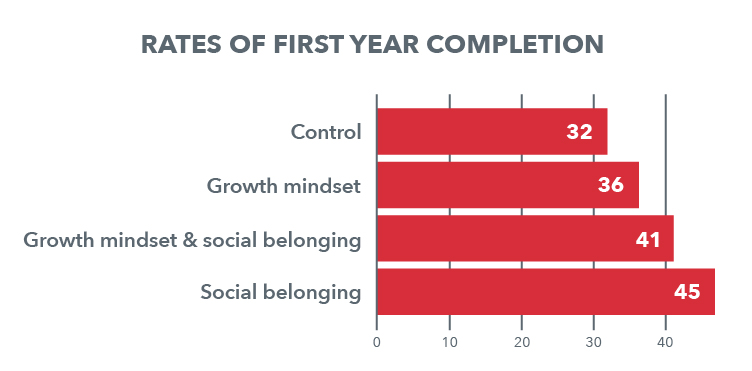Supporting Evidence
Research-based interventions
These types of interventions are based on a broad range of rigorous, randomized experimental trials demonstrating the efficacy of brief exercises that target students’ attitudes and beliefs about themselves and school to improve core academic outcomes.
In 2016, a study involving 9500 participants conducted by David Yeager at the University of Texas, exposed first-year students from under-represented groups to messaging about mindset.[i]
The growth mindset intervention provided information that supported the idea that intelligence and academic performance are not fixed, unchangeable traits, but ones that can be improved with effort and time. This intervention taught that poor initial grades are a natural part of the learning process.
The social belonging messaging took the form of videos featuring upper-year students relating their experiences transitioning to post-secondary education. These students told of initial feelings of isolation and a lack of belonging that were eventually replaced by feelings of integration and comfort with their role as a student.

The interventions in this study produced dramatic effects on first-year completion rates. Remarkably, the interventions in this study reduced the achievement gap between under-represented students and their peers by almost 50%.
For more information on reducing achievement gaps through psychological interventions, check out this extensive review of related research by David Yeager and Gregory Walton from Stanford University.
